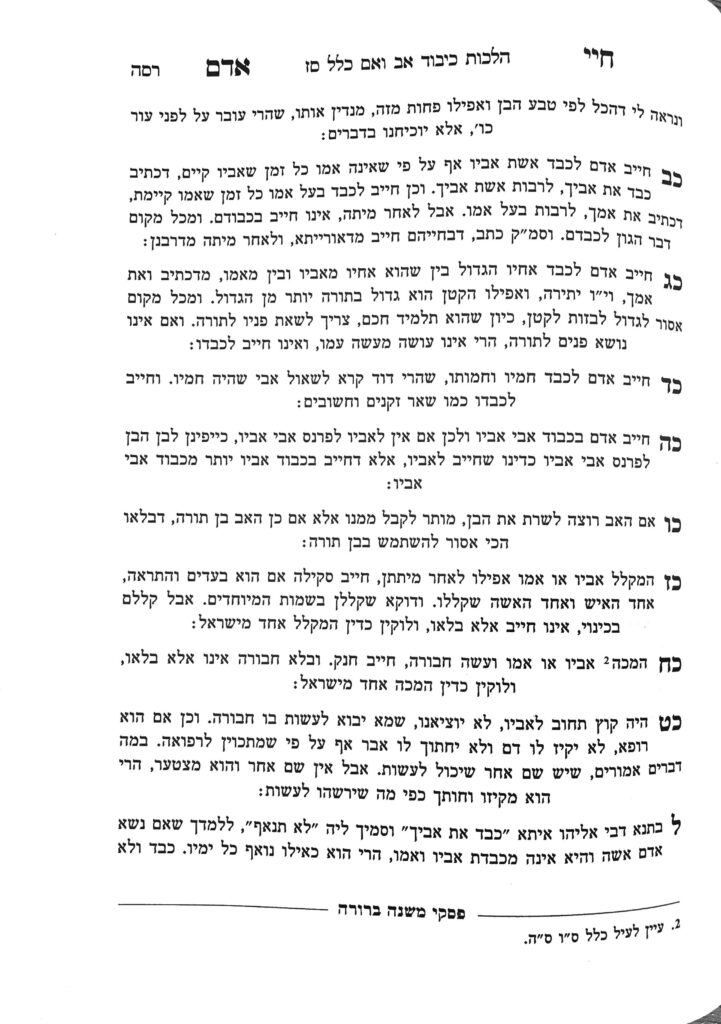We are beginning siman 26. The Chayei Adam discusses a parent taking care of a child. Many times, a parent wants to do an act of service for their child. Certainly, much of parenting involves the parent taking care of the child, but even when a child is older, a parent may still wish to do something for their child. The Chayei Adam writes that it is muttar for the child to accept the service of the parent, because if the will of the parent is to serve the child, that is also a form of kavod.
However, the Chayei Adam writes that if the father is a ben Torah, the son should not accept the service of their father, because it is generally assur to accept service from a ben Torah. This halacha is based on the Gemara in Kiddushin which brings a story of an amora who would be serviced by his parents when he would come home. He asked his rebbe if it was muttar to accept the service. His rebbe replied that is muttar to accept the service from his mother, but not from his father, because his father was a talmid chochom. The Gemara explains that one may not accept service from their father who is a talmid chochom, because we are concerned that, deep down, the father may feel a chalishas hadaas, slighted by the fact that they are serving their child.
The Ran adds that if the father has a very strong desire to serve the child (to the extent that it appears there will be no chalishas hadaas), it would be muttar. The Randerives this from a story in the Yerushalmi. Rav Yishmael’s mother came to the beis medrash to complain that her son was not performing kibud av v’eim. When they asked her to explain what she meant, she said that when Rav Yishmael comes home tired from beis medrash at the end of the day, she wishes to wash his feet, and he refuses. By ignoring her desire, she felt that Rav Yishmael was not performing kibud av v’eim. The chachomim told Rav Yishmael that it is muttar and required that he allow his mother to wash his feet, because retzono shel adam zeh kevodo, listening to a person’s will is a form of kavod. The Ran derives from here that if the father truly wishes to serve the son, he may do so, because accepting the service is a form of kavod.
The Pri Chodosh disagrees. Some meforshim suggest that the Chayei Adam’s silence regarding this point indicates that he agrees with the Pri Chodosh, that a parent may never serve a child. However, we need to understand why it would be assur if it is truly the will of the parent. We will discuss this question in the next shiur, be’ezras Hashem.
Summary
A child may accept service from their parents, because it is a form of kavod towards the parent to respect their will. However, if their father is a talmid chochom, it is assur, because it is always assur to accept service from a talmid chochom.



